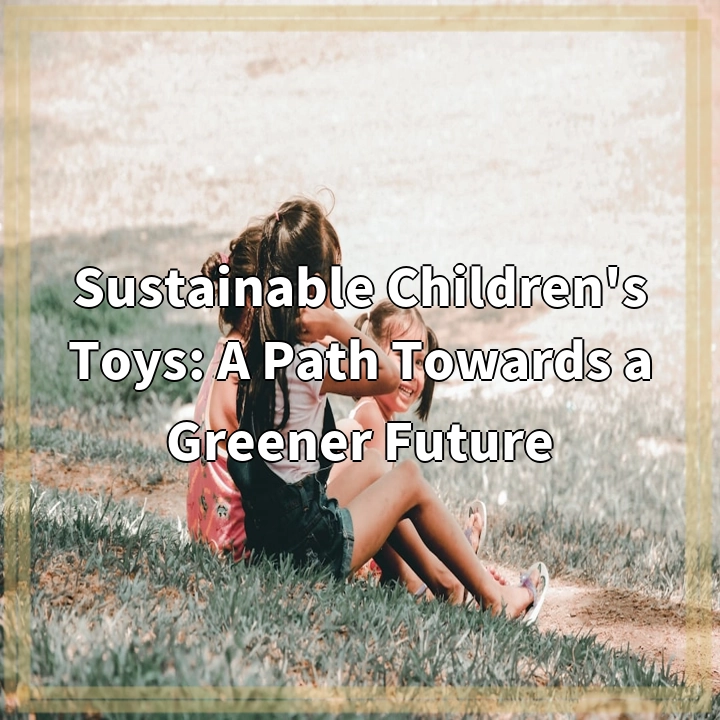Physical Address
304 North Cardinal St.
Dorchester Center, MA 02124
Physical Address
304 North Cardinal St.
Dorchester Center, MA 02124

As concerns about the environment continue to grow, the demand for sustainable children’s toys is on the rise. These toys are designed, manufactured, and used in a way that minimizes their negative environmental impact. Made from eco-friendly materials, such as organic cotton, recycled plastic, bamboo, or FSC-certified wood, these toys prioritize the well-being of children and the planet.
Traditional children’s toys contribute to several real-world environmental problems. One of these is the issue of plastic waste. Plastic toys, often made from non-recyclable materials, take hundreds of years to decompose, leading to environmental pollution. Additionally, many conventional toys contain harmful chemicals, such as phthalates and lead, which can be hazardous to children’s health.
Another problem is deforestation caused by the production of certain toys, like wooden toys or puzzles. Irresponsible logging practices can destroy ecosystems and disrupt biodiversity. Moreover, the manufacturing of toys requires the extraction of raw materials, contributing to resource depletion and increasing greenhouse gas emissions and energy consumption. The toy industry has also fallen into the trap of fast fashion, resulting in overconsumption and excessive waste generation.
To address these problems, several solutions can be implemented. Firstly, prioritizing toys made from sustainable and biodegradable materials is essential. Materials like organic cotton, recycled plastic, bamboo, and FSC-certified wood have a lower environmental impact and reduce reliance on non-renewable resources.
It is also crucial to promote safe and non-toxic toys. Choosing toys that are free from harmful chemicals and toxins helps protect the health and well-being of children. Certifications like EN71 or ASTM ensure compliance with safety standards and the absence of hazardous substances.
Supporting brands that prioritize sustainable manufacturing practices is another key solution. This includes using renewable energy sources, minimizing water usage, reducing waste, and adopting fair labor practices. By supporting companies with ethical and sustainable practices, positive change can be driven within the toy industry.
Promoting durability and longevity in toys is important to reduce waste and resource consumption. Encouraging the purchase of well-made toys that can withstand rough play and multiple children reduces the need for frequent replacements.
Reducing, reusing, and recycling also play a significant role in promoting sustainability. Emphasizing the importance of reducing toy consumption and reusing or donating toys that are no longer needed helps keep them in circulation and reduces the demand for new toys. Recycling options should be explored for broken toys to ensure proper disposal or repurposing.
Educating children and parents about the environmental impact of toys is crucial. By fostering environmental awareness at an early age, a sense of responsibility and consciousness towards the planet can be instilled.
Advocating for policies and regulations in the toy industry is another important step. Supporting stronger regulations and standards, such as banning harmful chemicals in toys or promoting the use of eco-friendly materials, can ensure greater transparency, accountability, and sustainability.
By embracing sustainable children’s toys, we can contribute to a greener future. These toys reduce waste and pollution, protect children’s health, and conserve our precious resources. Making sustainable choices in the toy industry is a significant step towards building an environmentally conscious society that prioritizes the well-being of children and the planet.
If you’re wondering where the article came from!
#